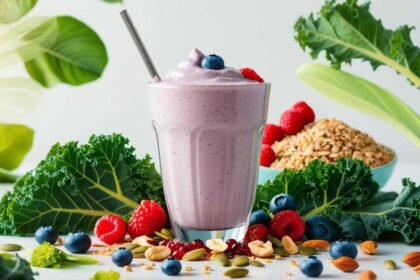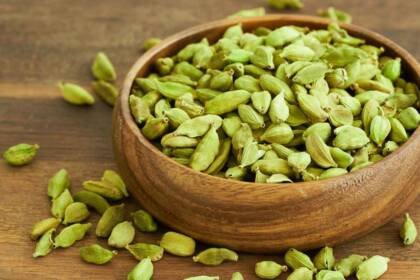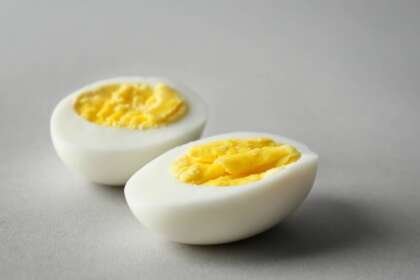Masago is a seafood delicacy that stands out as a nutritious powerhouse despite its little size. Masago is considered a superfood owing to its high nutrient density and wide range of beneficial effects; it is made from the roe of many fish species, most notably capelin.
This article discusses the many health benefits associated with eating masago, as well as the many nutrients that can be found in this tasty treat.
1. Rich Source of Omega-3 Fatty Acids
Masago’s high concentration of omega-3 fatty acids is one of the fish’s most notable health advantages. These fats are vital for several bodily processes, including keeping the heart healthy, lowering inflammation, and bolstering cognitive power.
Eicosapentaenoic acid (EPA) and docosahexaenoic acid (DHA) are two types of omega-3 fatty acids that have been shown to improve cardiovascular health by decreasing triglyceride levels, blood pressure, and the risk of blood clot formation.
In addition, the omega-3 fatty acid (DHA) in masago is excellent for the brain and nervous system of individuals of all ages.
2. High in Protein
Because of its high protein content, Masago is a great food for individuals who want to increase their daily protein consumption. Protein is crucial for immune system function and the development of new muscle tissue. Athletes, vegans, and those with greater protein needs may all benefit from increasing their intake of masago.
3. Abundant in Essential Vitamins
Many vitamins necessary for good health may be found in masago. Its high vitamin B12 content is important for things like red blood cell development, neuron transmission, and DNA synthesis. Vitamin E, found in masago, is a powerful antioxidant that protects cells from free radical damage.
4. Rich in Minerals
Masago has a wide variety of minerals, some of which are rather rare. The antioxidant properties of selenium aid in its ability to protect the body from the damaging effects of oxidative stress and to maintain a robust immune system. Both magnesium and phosphorus are crucial to maintaining healthy bones and muscles.
5. Low in Calories
Masago may be a tasty treat for those who are watching their weight loss. Masago is a great complement to a wide variety of meals, from sushi rolls to salads and even appetizers because of its low-calorie count.
6. Provides Essential Amino Acids
Because it includes all nine of the necessary amino acids that the body needs, Masago is considered a complete protein. Complete proteins, like those found in masago, are necessary for sustaining and mending tissues and for fueling a wide range of metabolic processes since amino acids are the building blocks of proteins.
7. Supports Bone Health
Masago’s calcium content aids in bone health, allowing for the maintenance of strong and robust skeletons. Masago’s mix of calcium and phosphorus is also important for avoiding osteoporosis and preserving bone density.
8. Supports Eye Health
Vitamin A, found in abundance in masago, is necessary for good visual health. Vitamin A is essential for healthy eyes, and it helps with night vision in particular. As an added benefit, it helps maintain healthy corneas and other eye structures, decreasing the likelihood of future vision impairment.
9. Boosts Collagen Production
Collagen, a protein essential for skin suppleness and a young look, may be found in abundance in masago, a natural food source. Wrinkles and fine lines may be concealed by collagen’s support of the skin’s structure. If you want healthier, more vibrant skin, eating masago regularly may help.
10. Supports Thyroid Function
Iodine, a trace mineral necessary for healthy thyroid function, may be found in masago. Iodine is essential for the production of thyroid hormones by the thyroid gland, which controls
11. Aids in Red Blood Cell Production
Hemoglobin is made from iron, and masago is a great supply of that essential element. Hemoglobin is responsible for transporting oxygen across the body and keeping all of its organs and tissues adequately supplied with oxygen. People with iron deficiency anemia may benefit greatly from eating masago.
12. Supports Immune Function
Masago is packed with antioxidants, vitamins, and minerals that all work together to strengthen your immune system. Vitamins and minerals strengthen the immune system and help the body fight off infections and diseases, while antioxidants protect cells from oxidative stress and free radical damage.
13. Promotes Cardiovascular Health
Masago is beneficial to heart health not just because of the omega-3 fatty acids it contains, but also because of the low amounts of saturated fats and high quantities of unsaturated fats it contains. Substituting unsaturated fats for saturated ones is one way to decrease LDL cholesterol and protect against heart disease.
14. May Improve Mood and Mental Health
Researchers have shown that the omega-3 fatty acids in Masago may boost both emotional and mental health. Research suggests that these fats may help alleviate depressive and anxious feelings and promote healthy mental health.
15. Enhances Brain Function
The omega-3 fatty acids included in masago are not only beneficial to one’s state of mind but also to the growth and operation of one’s brain. During pregnancy and early infancy, when the brain is still developing, they are especially crucial.
Bottom Line
Masago is deserving of its reputation as a sea-based superfood due to the wide range of positive effects it has on health. Masago’s high nutrient content makes it a worthwhile addition to any diet for a variety of reasons, including its positive effects on cardiovascular health, bone density, and eye and skin health.
Consume masago in moderation, and think about buying it only from reputable sources to guarantee it will be there for future generations. Accept the benefits of masago and have a longer, more fulfilling life.












